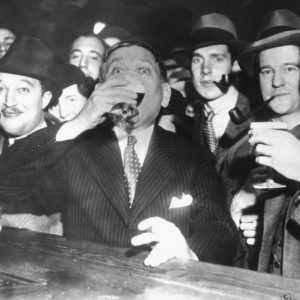Today, December 5th, 2018, marks the 85th anniversary of the repeal of Prohibition — America’s failed experiment into restricting consumer access to alcohol. But while the days of speakeasies and illegal alcohol trafficking are behind us — and thankfully so — a new era of Prohibition-like policies and sentiments is once again creeping into public discourse and debate.
In some ways, laws around alcohol and its consumption continue to loosen. For example, earlier this year, legislation went into effect that lowered the federal tax rate for beer, wine and spirits producers. And at a more local level, states and municipalities continue to walk back restrictions on where and when alcohol can be sold.
However, don’t be distracted by this progress. An anti-alcohol agenda — fueled by rhetoric promising increased safety and better health — is being advanced by a new group of activists, researchers and policymakers.
In just over a month, Utah will become the first state in the country to lower the legal blood alcohol limit for driving from 0.08 to 0.05. While proponents masquerade the policy as “tough on drunk driving” and a way to save lives, the move, in practice, is an affront on moderate and responsible alcohol consumption.
It takes very little alcohol to reach a 0.05 BAC. A 120-pound woman can hit that level after consuming little more than a single drink and a 160-pound man will round the threshold after two. Implementing a 0.05 law will, therefore, subject those who enjoy a drink or two with dinner or out with friends before driving to all of the consequences associated with a DWI.
But what about the impact on traffic safety? Well, according to new data released by the National Highway Traffic Safety Administration, nearly 70 percent of alcohol-related traffic fatalities involve drivers with BACs of 0.15 or higher — a group that is not targeted by lowering the legal limit. In contrast, fewer than 3 percent of traffic deaths involve someone with a BAC between the disputed interval of 0.08 and 0.05.
It’s clear where the problem lies and it isn’t with someone who enjoys a glass or two of their favorite beer, wine or spirit before heading home.
Therefore, although lowering the legal limit may sound good on paper as a strategy to save lives, the policy will only divert limited traffic safety resources from focusing on the truly dangerous and legitimately drunk drivers on the road. All while suppressing moderate and responsible social drinking at bars and restaurants.
The effort to lower the legal blood alcohol limit is only part of a broader strategy to demonize moderate drinking.
Over the last several months, a new effort has been launched to unwind the widely accepted link between moderate alcohol consumption and modest health benefits — including a reduced risk of stroke, diabetes, heart disease, dementia. Studies published in journals like The Lancet have attempted to prove the opposite relationship exists — connecting moderate drinking to major health consequences — notably breast cancer.
While these findings have been echoed loudly in the media with headlines like “There’s No ‘Safe’ Level of Alcohol Consumption, Global Study Finds” and “Safest level of alcohol consumption is none, worldwide study shows,” the top line conclusions of these meta-analyses are largely exaggerated and lack needed context. Not to mention the inherent weaknesses and questionable accuracy of the underlying data that relies on survey-based reporting.
Pushing the distorted narrative that even moderate drinking is detrimental to one’s health could have very real policy impacts going forward. While it cannot be seen concretely in the United States as yet, an anti-alcohol sentiment overseas has already begun to morph into law. Earlier this year, Irish lawmakers advanced legislation that would mandate cancer warning labels on all alcohol products — similar to those found on cigarettes.
Whether from a road safety or health perspective, everyone agrees that heavy drinking is dangerous and should be discouraged. However, attempting to accomplish that goal by demonizing alcohol in general and those who consume it moderately is not the solution.
It’s clear the Prohibition of the 20th century was a mistake. Current pushes for Prohibition-light policies and sentiments should also be seen as one.

